Breaking
- MENU
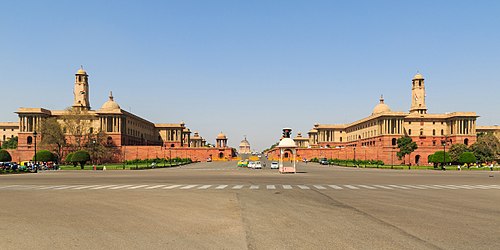
BILATERAL ISSUES
Cabinet approves Memorandum of Understanding between India and Bahrain on Cooperation in the Exploration and Uses of Outer Space for Peaceful Purposes, New Delhi, 31 July 2019.
The Union Cabinet chaired by Prime Minister Narendra Modi was apprised about the signing of Memorandum of Understanding between India and Bahrain on Cooperation in the Exploration and Uses of Outer Space for Peaceful Purposes.
The MoU was signed in March 11, 2019 at Bengaluru by India and on March 28, 2019 at Manama by Bahrain.
Details:
This MoU shall enable the following potential interest areas of cooperation such as, space science, technology and applications including remote sensing of the earth; satellite communication and satellite-based navigation; Space science and planetary exploration; use of spacecraft and space systems and ground system; and application of space technology.
This MoU would lead to set up a Joint Working Group, drawing members from DOS/ISRO and the Bahrain National Space Science Agency (NSSA) of the Government of the Kingdom of Bahrain, which will further work out the plan of action including the time-frame and the means of implementing this MoU.
Implementation Strategy and Targets:
The signed MoU would lead to concluding specific implementing Arrangement and setting up of Joint Working Group, to work out the plan of action including the time frame and the means of implementing this MoU.
Impact:
The signed MoU will provide impetus to explore newer research activities and application possibilities in the field of remote sensing of the earth; satellite communication; satellite navigation; space science and exploration of outer space.
Expenditure involved:
The financial contribution with respect to each specific activity would depend on the nature of Joint activity and will be detailed in corresponding Implementing Agreements (Arrangements) / Contracts.
Benefits:
Cooperation with the Government of the Kingdom of Bahrain through this MoU would lead to develop a joint activity in the field of application of space technologies for the benefit of humanity. Thus, all sections and regions of the country will get benefited.
Background:
Chief of the Bahrain National Space Science Agency (NSSA) and the Minister of Transportation and Telecommunication of Bahrain have expressed interest to have space cooperation with ISRO to Indian Ambassador in April 2018.
As a follow up, on the request of MEA in July 2018, an MoU for India-Bahrain Space Cooperation was drafted and shared with MEA. Subsequently, Bahrain side has given its concurrence and both sides have arrived at mutually agreed version for signing. Source: Press Information Bureau (PIB)
Unstarred Question No.5181 CHABAHAR PORT, Lok Sabha, 24 July 2019.
5181. SHRI BRIJENDRA SINGH:
Will the Minister of EXTERNAL AFFAIRS be pleased to state:
(a) whether the development and Indian operations at Chabahar Port are adversely affected by the ongoing tensions between the USA and Iran; and
(b) if so, the details thereof and the diplomatic measures that are being deployed to safeguard our strategic and commercial interests?
ANSWER
THE MINISTER OF STATE IN THE MINISTRY OF EXTERNAL AFFAIRS [SHRI V. MURALEEDHARAN]
(a) & (b) India is participating in the development of the first phase of Shahid Behesti Port in Chabahar in cooperation with the Government of Islamic Republic of Iran. The Indian company, India Ports Global Limited, has taken over port operations in December 2018 and has been successfully handling cargo since then.
The U.S. has shown understanding of the importance of the Chabahar Port operations for continued humanitarian supplies to Afghanistan and to provide Afghanistan with economic alternatives.
Afghanistan has also started using the port facility. It has sent its first export consignment to India through Chabahar Port in February 2019. Subsequently, it has sent three more consignments to India through Chabahar Port in June 2019. Source: Ministry of External Affairs (MEA)
Unstarred Question No.3694 INDIA- IRAN JOINT CONSULAR COMMITTEE MEETING, Rajya Sabha, 25 July 2019.
3694. SHRIMATI SHANTA CHHETRI:
Will the Minister of EXTERNAL AFFAIRS be pleased to state:
(a) whether he has, in the India-Iran Joint Consular Committee Meeting held recently, pledged for mutual legal assistance on civil and commercial matters with Islamic Republic of Iran extending longer duration of e-Visa for nationals of each other on reciprocity and visa facilitation for greater people to people contacts; and
(b) if so, the details thereof?
ANSWER
THE MINISTER OF STATE IN THE MINISTRY OF EXTERNAL AFFAIRS [SHRI V. MURALEEDHARAN]
(a) & (b) An Agreement on Mutual Legal Assistance on Civil and Commercial Matters is presently being negotiated with Islamic Republic of Iran. During the India-Iran Joint Consular Committee Meeting (JCCM) which was held in New Delhi on May 14, 2019, the proposed Agreement was discussed with a view to its expeditious conclusion.
During the India-Iran JCCM both sides agreed to take steps to further streamline visa issuance process on reciprocal basis to facilitate people to people contacts and promote friendly exchanges. Iran is one of the 167 countries to whom the Indian e-Visa facility has been extended. Pursuant to discussions in JCCM, Iran has now extended the Visa on Arrival facility for Indian nationals from 30 to 90 days. Further, Indian nationals can now receive one-year multiple-entry Entry Visa from the Missions and Consulates of the Islamic Republic of Iran located in India. Source: Ministry of External Affairs (MEA)
8th meeting of the Joint Committee on Ports & Maritime Cooperation between the Republic of India and the Islamic Republic of Iran (29-30 July 2019, Tehran), Tehran, 30 July 2019
The 8th meeting of the Joint Committee on Ports & Maritime Cooperation between India and Iran was held in Tehran on 29-30 July 2019.
During the meeting, both sides reviewed and positively assessed the progress made in ports & maritime cooperation between the two countries, including, progress in the development of Chabahar port. Both sides welcomed the commencement of interim operations at the Shahid Beheshti port by India Ports Global Chabahar Free Zone (IPGCFZ) and explored ways of attracting further vessel traffic at the port. They discussed the progress in procurement of equipment for the port and issues related to it.
Both sides reiterated their commitment on cooperation in the field of connectivity to provide Afghanistan an assured and alternative access to regional markets, thus, contributing to development, peace and stability in Afghanistan and also the region as a whole.
Underlining the importance of cooperation in the ports & maritime sector, both sides agreed to continue to hold the Joint Committee meetings regularly. It was decided to hold the 9th meeting of the Joint Committee on Ports & Maritime Cooperation in the second half of 2020 in India. Source: Embassy of India, Tehran
Cabinet approves MoU of Cooperation between India and Morocco, New Delhi, 03 July 2019.
The Union Cabinet chaired by Prime Minister Narendra Modi has approved the MoU between India and Morocco for developing, promoting and strengthening mutual cooperation between the judiciaries of the two countries.
Impact:
The approval will promote cooperation between India and Morocco in judicial and other legal areas and enable exchange of knowledge in infrastructure and information technology. Source: Press Information Bureau (PIB)
INS Tarkash at Tangier, Morocco, 08 July 2019.
Indian Naval Ship Tarkash arrived at Tangier, Morocco today for a three-day visit. The visit is part of an ongoing Overseas Deployment by the Indian Navy to the Mediterranean Sea, Africa and Europe. The visit seeks to strengthen the bonds of friendship between India and Morocco.
INS Tarkash, commanded by Captain Sathish Vasudev, is a state-of-the-art stealth frigate of the Indian Navy, equipped with a versatile range of weapons and sensors capable of addressing threats in all three dimensions. The ship is a part of the Indian Navy's Western Fleet and is under the operational Command of Flag Officer Commanding-in-Chief, Western Naval Command.
During the port call, various dignitaries and government officials of Morocco including senior naval officers are scheduled to visit the ship. The ship would also take part in numerous professional, social and sporting interactions planned with the Royal Moroccan Navy. On departing the port, INS Tarkash will carry out a Passage Exercise at sea with ships of the Royal Moroccan Navy. Source: Press Information Bureau (PIB)
Press statement on the demise of H.E. Mr. Mohamed Beji Caid Essebsi, President of the Republic of Tunisia, New Delhi, 26 July 2019.
We are deeply saddened by the demise of H.E. Mr. Mohamed Beji Caid Essebsi, President of the Republic of Tunisia on 25 July 2019.
President Essebsi was a great leader and patriot who was instrumental in the peaceful democratic transition of Tunisia. He was a staunch defender of democratic values and worked tirelessly for the well-being of his people.
President Essebsi will be remembered for his significant contribution to strengthening of bilateral ties between India and Tunisia.
The Government and people of India convey their deepest condolences to the Government and people of Tunisia and to the family on this great loss. Source: Ministry of External Affairs (MEA), New Delhi
Press Release on India Turkey Bilateral CT Dialogue on July 04, 2019, Ankara, 04 July 2019
India and Turkey held high level Joint Working Group on Counter Terrorism dialogue on July 04, 2019 in Ankara. The delegations, which included members from various organizations, were led by Mr Mahaveer Singhvi, Joint Secretary (Counter Terrorism), Ministry of External Affairs of India and Ambassador Aylin Tashan, Director General, Security Affairs, Ministry of Foreign Affairs of Turkey.
The delegations discussed developments pertaining to their regions, and shared experiences of countering terrorism, prevent terrorist financing, countering extremism and radicalization and other issues of common interest.
The next meeting will be held in New Delhi. The CT dialogue was held under the aegis of regular bilateral dialogue between India and Turkey. Source: Embassy of India, Ankara
Talking Point for the Ambassador's Speech at SDE conference titled ‘India in the Changing World' on July 04, 2019
President Savas Kafkasyali, Hon’ble MP Efkan Ala, Arshi Khan, dear friends
Era of Change:
One of the most transformational epochs in history; major trends
Emergence of Asia and concept of Indo-Pacific:
Where India fits in:
Visit of Foreign Minister of the United Arab Emirates to India (July 7-9, 2019), New Delhi, 04 July 2019
His Highness Sheikh Abdullah bin Zayed Al Nahyan, Minister of Foreign Affairs and International Cooperation of the United Arab Emirates, is paying an official visit to India from 7-9 July, 2019. He will be accompanied by a senior-level delegation.
During the visit, His Highness Sheikh Abdullah will hold bilateral talks with External Affairs Minister. He will also call on Prime Minister.
India and the UAE enjoy warm, close and multi-faceted relations underpinned by historic cultural, religious and economic linkages which stand elevated to a Comprehensive Strategic Partnership. The UAE is India’s third-largest trade partner and fourth largest energy supplier. UAE is also the first country to participate in India’s ‘Strategic Petroleum Reserves’ programme. A 3.3 million-strong Indian community, largest in the Gulf region, has made the UAE its second home and is contributing to its development. As the chair of OIC, UAE invited India as the ‘Guest of Honour’ at the 46th Council of Foreign Ministers meeting of OIC in Abu Dhabi in March 2019.
Prime Minister Shri Narendra Modi had visited the UAE in August 2015 during which the two countries decided to elevate their relations to a Comprehensive Strategic Partnership. Prime Minister also visited the UAE in February, 2018. Crown Prince of Abu Dhabi, His Highness Sheikh Mohammed bin Zayed Al Nahyan had visited India during February, 2016 and in January, 2017 when he was the Chief Guest at the Republic Day celebrations.
His Highness Sheikh Abdullah bin Zayed Al Nahyan had visited India earlier in the bilateral context during September, 2015 and June, 2018 and had also accompanied the Crown Prince of Abu Dhabi during his visits in 2016 and 2017. The present visit would provide the two sides with an opportunity to explore new areas of cooperation to further strengthen their Comprehensive Strategic Partnership. Source: Ministry of External Affairs (MEA), New Delhi
Foreign Minister of UAE calls on the Prime Minister, New Delhi, 09 July 2019.
Foreign Minister of United Arab Emirates, His Highness Sheikh Abdullah bin Zayed Al Nahyan, on an official visit to India, called on Prime Minister Shri Narendra Modi earlier today.
The Foreign Minister conveyed the greetings and best wishes of the President and the Crown Prince of Abu Dhabi.
Recalling the warmth and hospitality extended to him during his previous visits to UAE, the Prime Minister requested the Foreign Minister to convey his best wishes for health, happiness, and all-round success to the President and the Crown Prince. He also expressed happiness at the growth of bilateral relations over the last five years.
The Foreign Minister stated that India-UAE relations have never been better. He also outlined UAE’s vision to enhance bilateral cooperation for mutual benefit of the people of both the countries and also for peace, prosperity and stability in the region.
The Prime Minister reiterated his strong commitment to work with the UAE leadership to take the relationship to higher levels in all spheres of cooperation, including in trade and economy, energy, tourism and people-to-people contacts. Source: Ministry of External Affairs (MEA), New Delhi
Official visit of Foreign Minister of the UAE to India (July 7-9, 2019), New Delhi, 09 July 2019.
His Highness Sheikh Abdullah bin Zayed Al Nahyan, Foreign Minister of the United Arab Emirates paid an official visit to India on July 7-9, 2019.
During the visit, Foreign Minister Sheikh Abdullah met with the External Affairs Minister, Dr. S Jaishankar on 8 July, 2019, who hosted a dinner in his honour. The UAE Foreign Minister also called on Prime Minister Shri Narendra Modi on 9 July 2019.
In talks between EAM and H.H. Sheikh Abdullah, bilateral, regional and international matters of mutual interest were discussed.
During the call on PM, HH the Foreign Minister conveyed felicitations of the UAE leadership on the resounding victory in the elections. He extended an invitation to PM to visit UAE. PM thanked His Highness the President of the UAE and Crown Prince of Abu Dhabi for conferring on him the prestigious Order of Zayed, which he said he was proud to receive on behalf of 1.3 billion Indians. Both leaders expressed happiness at the current state of bilateral relations and discussed regional issues. They also agreed to build on these growing strategic links as well as further their trilateral cooperation initiatives, especially in Africa.
The visit of the Foreign Minister of the UAE provided an opportunity to both sides to constructively build on the vision of the comprehensive strategic partnership and to broaden cooperation in various sectors of bilateral relations. Source: Ministry of External Affairs (MEA), New Delhi
Unstarred Question No. .3700 INDIA-UAE RELATIONS, Rajya Sabha, 25 July 2019
3700. SHRI SANJAY SINGH:
Will the Minister of EXTERNAL AFFAIRS be pleased to state:
(a) the current status of India-UAE relations;
(b) whether the meeting with Sheikh Abdullah Bin Zayed would result in a change in the relations between the two nations;
(c) if so, the details thereof; and
(d) the details of plans for action in the international sphere if any?
ANSWER
THE MINISTER OF STATE IN THE MINISTRY OF EXTERNAL AFFAIRS [SHRI V. MURALEEDHARAN]
(a) to (c) India-UAE bilateral relations are deep rooted in age-old trade and cultural links and nourished by people to people contacts. In the last five years, with intensive high-level engagements, the relationship has been elevated to a ‘Comprehensive Strategic Partnership’. UAE is India’s third largest trading partner and fourth largest energy supplier. UAE is the first foreign country to participate in the India’s ‘Strategic Petroleum Reserves’.
His Highness Sheikh Abdullah Bin Zayed, Foreign Minister of the UAE paid an official visit on 7-9 July 2019 to India. During the visit he called on Prime Minister and held bilateral meeting with External Affairs Minister Dr. S. Jaishankar. The visit provided an opportunity to both sides to constructively build on the vision of the comprehensive strategic partnership and to broaden cooperation in various sectors of mutual interest.
(d) India-UAE expressed interest in South-South Cooperation in February 2016. An MOU for cooperation between India and the UAE for cooperation in developmental projects in Africa was signed in December 2018. Source: Ministry of External Affairs (MEA)
MULTILATERAL ISSUES
OIC Welcomes the UN Report on Jammu and Kashmir, Jeddah, 14 July 2019
The General Secretariat of the Organization of Islamic Cooperation welcomes the Report by the United Nations Office of the High Commissioner for Human Rights, entitled “Update of the Situation of Human Rights in Indian-Administered Kashmir and Pakistan-Administered Kashmir from May 2018 to April 2019” and its recommendations for the establishment of a Commission of Inquiry to address allegations of human rights violations in Indian Occupied Jammu and Kashmir.
The Report documents the excessive use of force by the Indian security forces in Indian Occupied Jammu and Kashmir, its continued brutal crackdown and use of pellet guns thereby causing large number of civilian deaths and injuries as well as many other serious human rights violations.
The OIC calls on India to allow OIC Independent Human Rights Commission (IPHRC) and United Nations Fact Finding Mission to visit the Indian Occupied Jammu and Kashmir. It also calls on India to allow the OIC Special Representative on Jammu and Kashmir and the OIC Fact Finding Mission to visit Indian Occupied Jammu and Kashmir for a neutral and impartial judgement of human rights situation there.
OIC further calls upon the international community to play its rightful role in ensuring the implementation of the relevant UN Security Council resolutions on Kashmir and fulfil the promises made by it with the people of Jammu and Kashmir through the democratic method of a free and impartial plebiscite conducted under the auspices of the United Nations. Source: Organisation of Islamic Cooperation (OIC)
Compiled by Ankita Sanyal
As part of the policy, the MEI@ND standardizes spellings and date format to make the text uniformly accessible and stylistically consistent. The views expressed here are those of the author and do not necessarily reflect the views/positions of the MEI@ND. Editor, MEI@ND P R Kumaraswamy
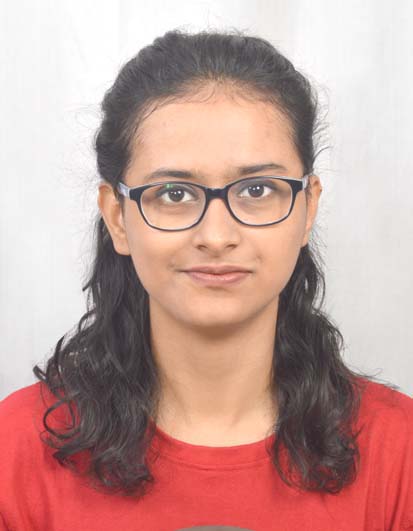
Ankita Sanyal is a doctoral candidate at Centre for West Asian Studies, Jawaharlal Nehru University, New Delhi. She worked as a summer intern at National Human Rights Commission, New Delhi in 2014 and participated in Global Initiative for Academic Networks, lecture on “Jerusalem and Abrahamic Faiths throughout the Ages” (November 2016); ICSSR-sponsored workshop on “Research Methodology Workshop in Social Sciences” (February 2019); and workshop on “Second Intensive Course on Women’s Studies in Islam and Iran” at the University of Religions and Denominations, Qom, Iran (August 2019). She currently has many publications and has presented papers in national and international conferences. She received certificate on completion of Level Two Persian Language course. Her area of interest includes minority studies, gender studies, cultural studies, education, peace and conflict studies.
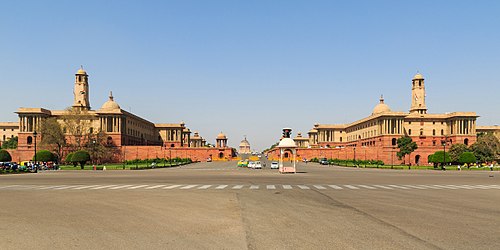
BILATERAL ISSUES BAHRAIN The CEO of LMRA highlights details on the new labour market reforms, .....
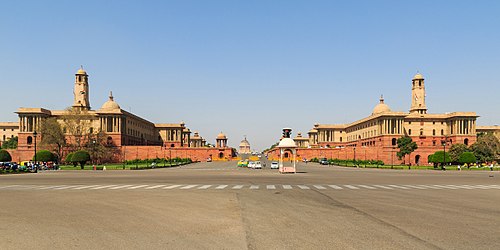
BILATERAL ISSUES EGYPT Raksha Mantri Shri Rajnath Singh to visit Egypt from September 19-20, 2.....
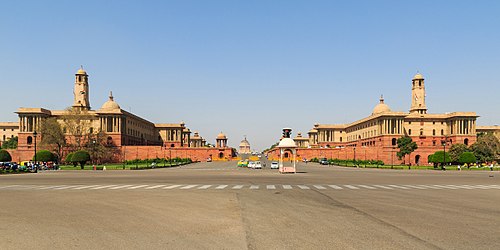
BILATERAL ISSUES IRAN Shri Sarbananda Sonowal visits Chabahar Port in Iran to Review work prog.....
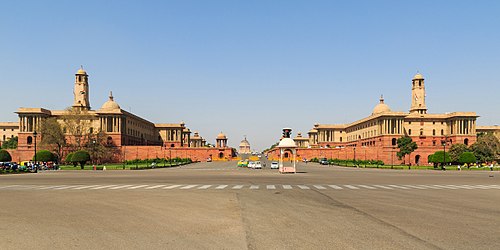
BILATERAL ISSUES BAHRAIN Deputy Chief of Naval Staff, India visits Kingdom of Bahrain, Manama,.....
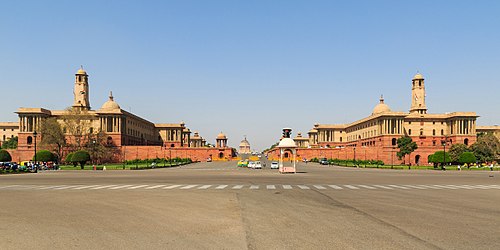
BILATERAL ISSUES BAHRAIN Buyer Seller Meet on Indian coffee between Indian exporters and Bahra.....
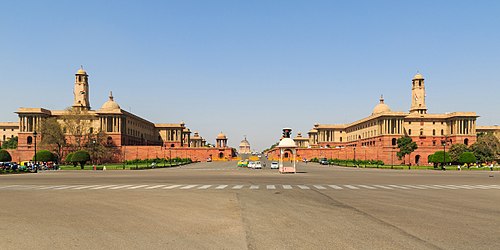
BILATERAL ISSUES BAHRAIN B2B meeting and Networking event between Bahraini & Indian IT com.....
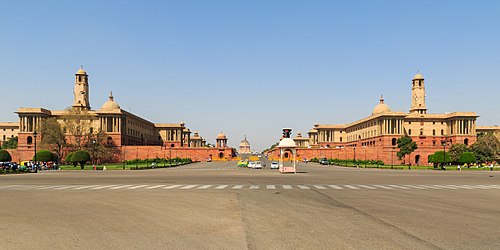
BILATERAL ISSUES OMAN Community Service Fortnight / Sewa Utsav’: ‘Celebration Thro.....
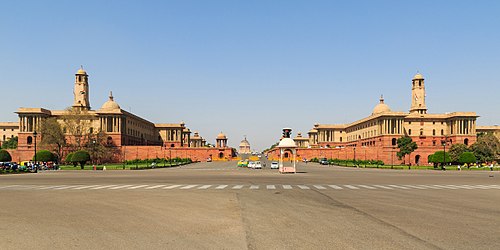
BILATERAL ISSUES BAHRAIN Virtual Buyer Seller Meet on agriculture and food products between In.....
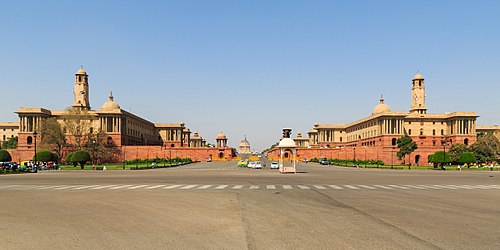
BILATERAL ISSUES BAHRAIN PM speaks on telephone with His Royal Highness Prince Salman bin Hama.....
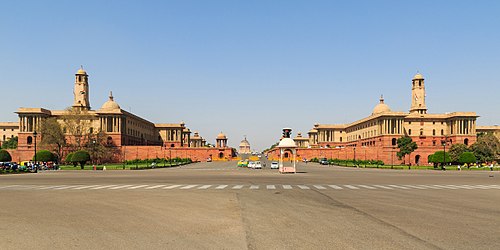
BILATERAL ISSUES ISRAEL Experts from India and Israel suggested expanding scope of India-Israe.....
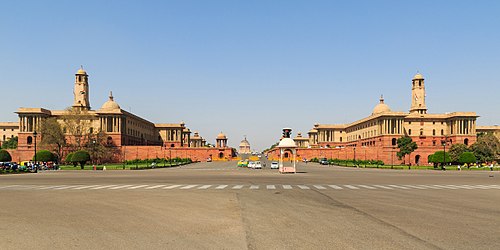
BILATERAL ISSUES BAHRAIN Press Release on virtual meeting between Minister for Education and S.....
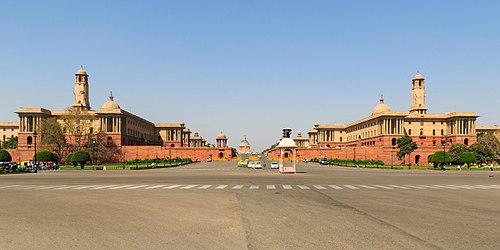
BILATERAL ISSUES BAHRAIN Ambassador’s visit to India Pavilion of Jewellery Arabia, Bahra.....
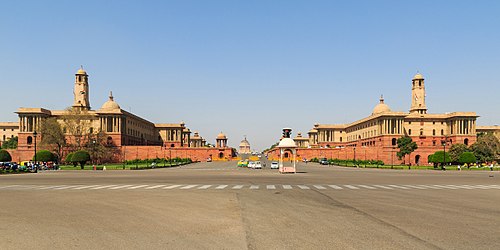
BILATERAL ISSUES BAHRAIN First consignment of GI tagged sweet dish Mihidana from West Bengal e.....
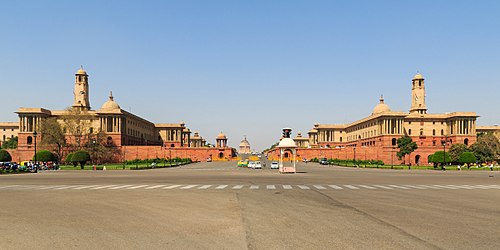
BILATERAL ISSUES ALGERIA Visit of Shri V. Muraleedharan, Minister of State for External Affair.....
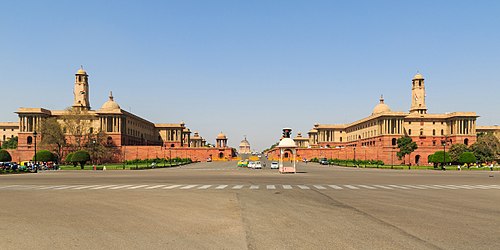
BILATERAL ISSUES ALGERIA INS TABAR undertook a bilateral Passage Exercise (PASSEX) with Algeri.....
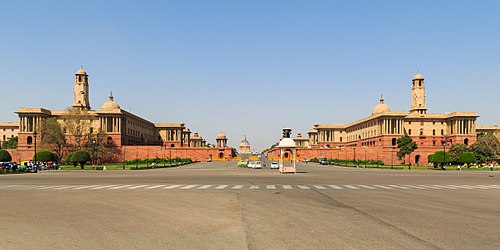
BILATERAL ISSUES BAHRAIN India expands mango export footprint to newer countries; GI certified.....
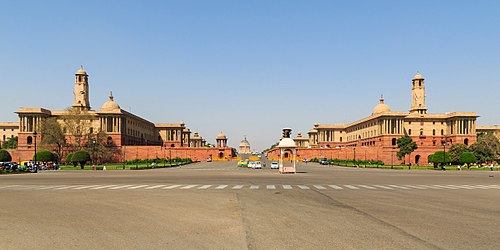
BILATERAL ISSUES ALGERIA APEDA in collaboration with Indian embassy organize virtual buyer sel.....
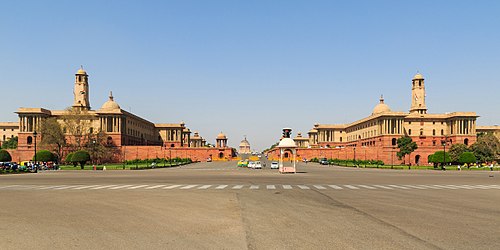
BILATERAL ISSUES EGYPT Procurement of 300,000 doses of Remdesivir from M/s EVA Pharma, Cairo, .....
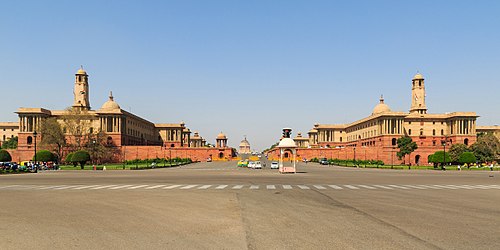
BILATERAL ISSUES BAHRAIN Third India-Bahrain High Joint Commission Meeting, New Delhi, 07 Apri.....
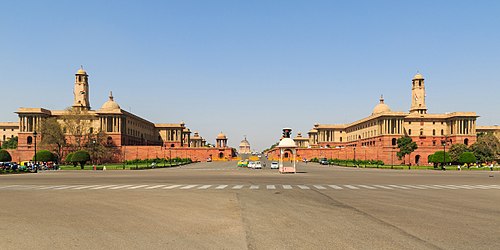
BILATERAL ISSUES BAHRAIN Indian Naval Ship Talwar’s Port Visit to Bahrain, Manama, 18 Ma.....
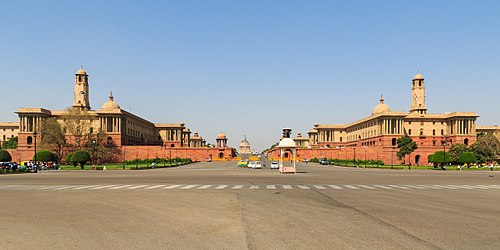
BILATERAL ISSUES IRAN Unstarred Question No.1475, Chabahar-Zaheden Railways Line, Lok Sabha, 1.....
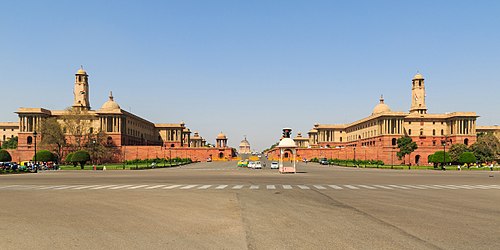
BILATERAL ISSUES IRAN Government of India strengthens cargo handling capacity of Chabahar Port.....
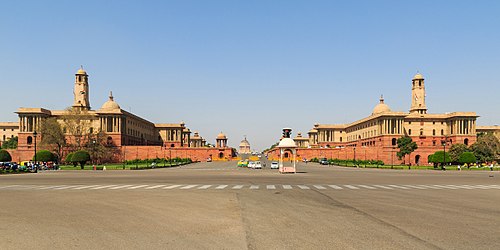
BILATERAL ISSUES BAHRAIN Warm greetings from Indian leadership on the occasion of Bahrain&rsqu.....
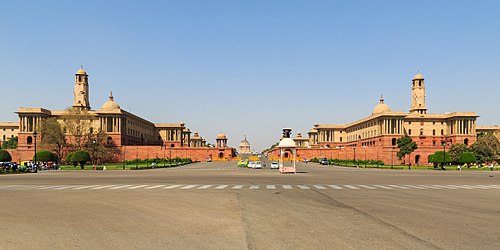
BILATERAL ISSUES BAHRAIN Prime Minister condoles the passing away of His Royal Highness Prince.....
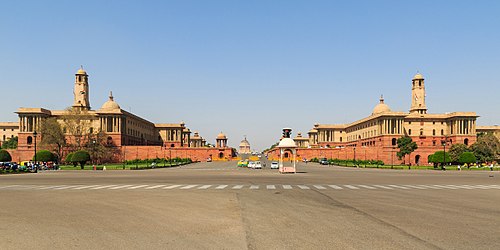
BILATERAL ISSUES BAHRAIN A B2B Webinar on Enhancing Opportunities in Pharmaceuticals and Alter.....
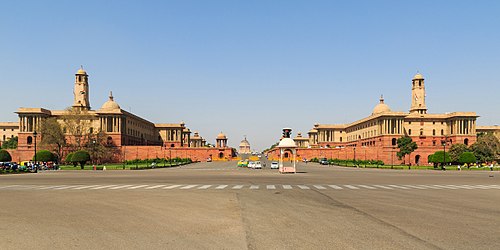
BILATERAL ISSUES IRAN Raksha Mantri Shri Rajnath Singh holds meeting with Iran's Minister .....
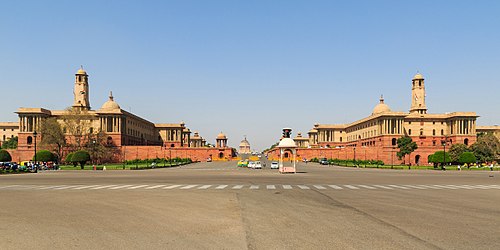
BILATERAL ISSUES ISRAEL Statement by the Official Spokesperson on the full normalisation of re.....
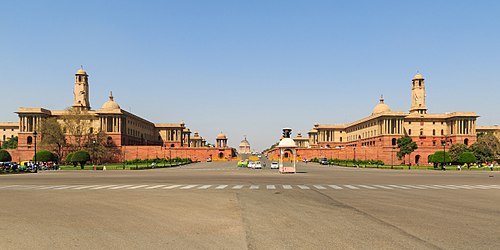
BILATERAL ISSUES ISRAEL Raksha Mantri Shri Rajnath Singh and Israeli Defence Minister telephon.....
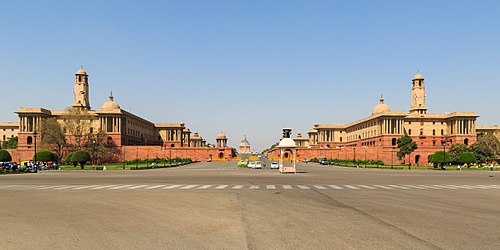
BILATERAL ISSUES IRAN Indian Navy Commences evacuation of citizens from Islamic Republic of Ir.....
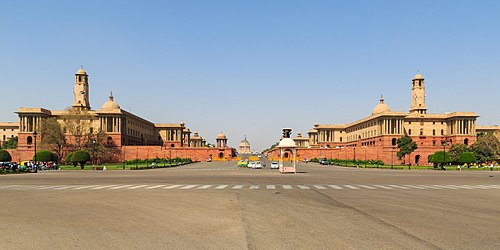
BILATERAL ISSUES EGYPT Phone call between Prime Minister Shri Narendra Modi and His Excellency.....
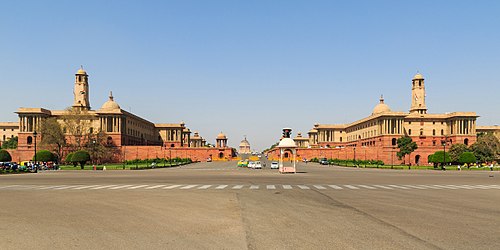
BILATERAL ISSUES BAHRAIN Telephone Conversation between PM and King of the Kingdom of Bahrain,.....
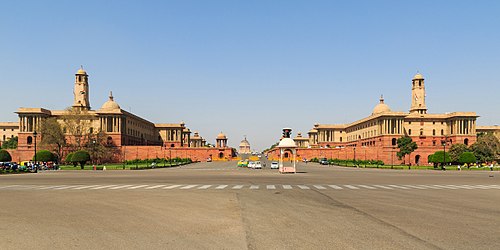
BILATERAL ISSUES IRAN IAF C-17 ‘Globemaster’ takes off for Iran, New Delhi, 9 Marc.....
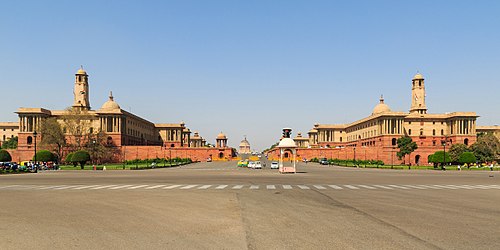
BILATERAL ISSUES IRAQ Travel Advisory for Indian Nationals travelling to Iraq, New Delhi, 19 F.....
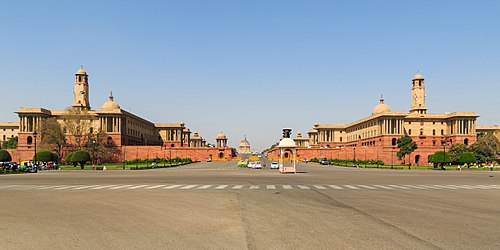
BILATERAL ISSUES EGYPT Photo exhibition on “Making of Indian Constitution and Life of Dr.....
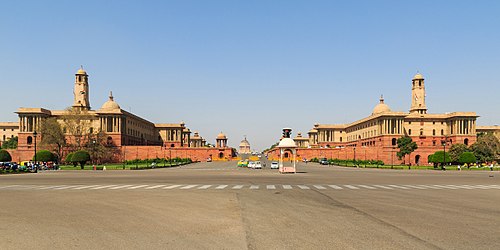
BILATERAL ISSUES EGYPT Prize Distribution Function of “Glimpses of India” Painting.....
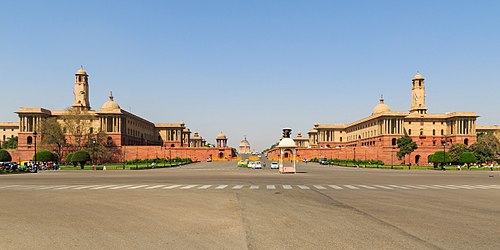
BILATERAL ISSUES EGYPT Consular Camp in Port Said on 22 November 2019, Cairo, 19 November 2019.....
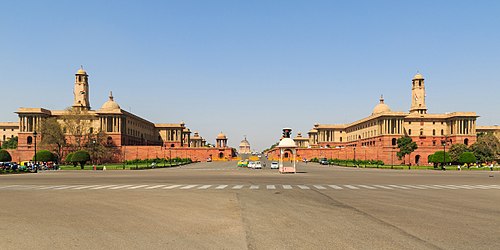
BILATERAL ISSUES JORDAN Meeting between Prime Minister and King of Jordan in Riyadh, Riyadh, 2.....
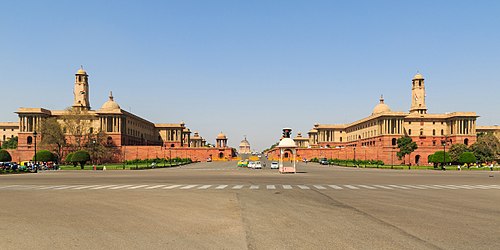
BILATERAL ISSUES a. IRAN Foreign Office Consultations between India and Iran, Tehran, 16 Septe.....
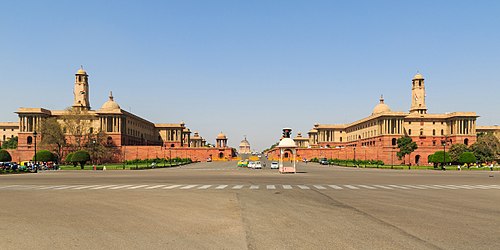
BILATERAL ISSUES a. BAHRAIN State Visits of Prime Minister to Bahrain (August 24-25, 2019), Ne.....
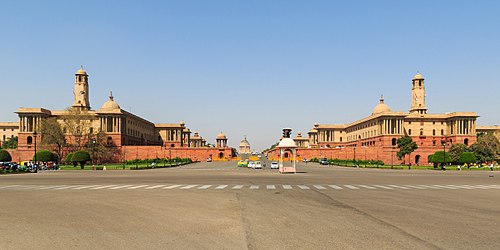
BILATERAL ISSUES IRAN UNSTARRED QUESTION No. 662 MPACT OF AMERICAN BAN ON CHABAHAR PORT, Rajya.....
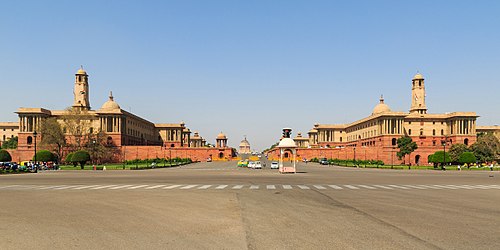
BILATERAL ISSUES IRAN 11th India Iran Joint Consular Committee Meeting (JCCM), New Delhi, 16 M.....
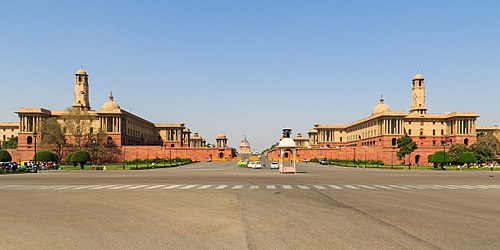
IRAN India extends relief assistance to Iran after recent floods, Tehran, 17 April 2019 In lin.....
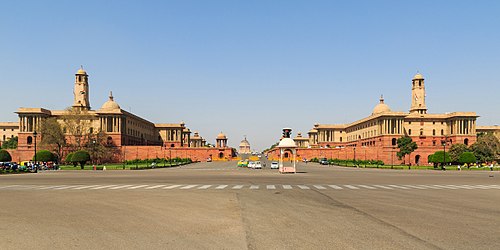
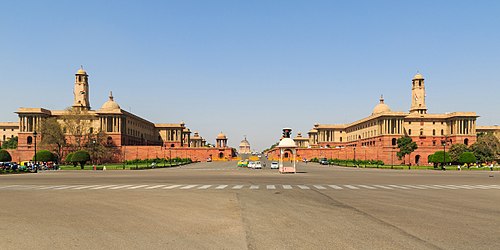
BILATERAL ISSUES EGYPT India condemns terrorist attacks in Egypt, New Delhi, 22 February 2019 .....
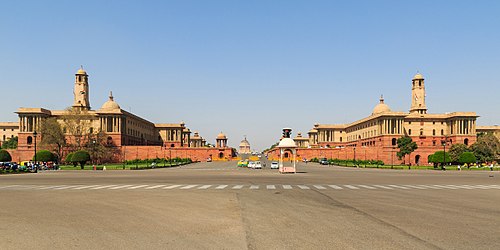
BILATERAL ISSUES ALGERIA Visit of Foreign Minister of Algeria to India (January 30-February 01.....
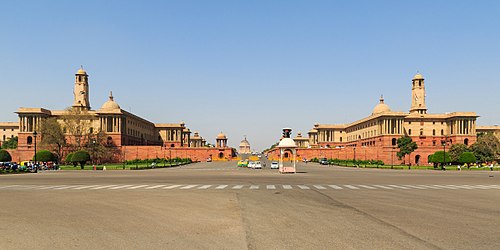
ALGERIA Cabinet approves Agreement between India and Algeria on Cooperation in the field of Space.....
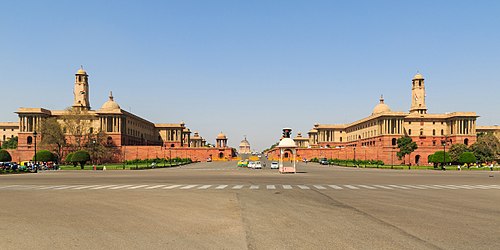
BILATERAL ISSUES IRAQ Jaipur Foot Camp in Karbala, Karbala, 21 November 2018 A 40-day Artif.....
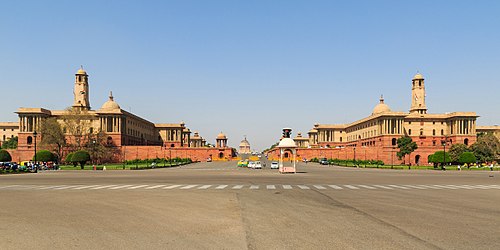
BILATERAL ISSUES KUWAIT Visit of External Affairs Minister to State of Qatar and State of Kuwa.....
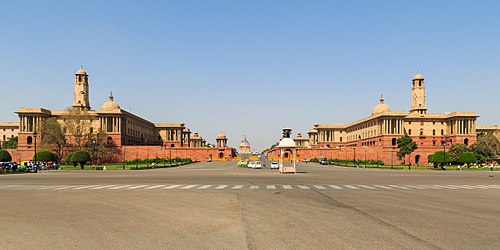
BILATERAL ISSUES EGYPT Cabinet approves MoU between India and Egypt on cooperation in the fiel.....
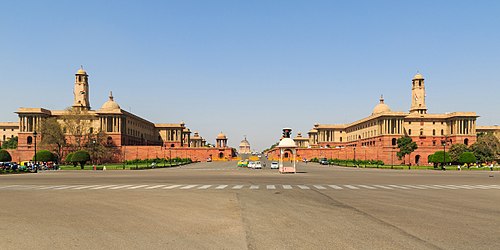
BILATERAL ISSUES BAHRAIN Question No. 3566, Unpaid Workers in Bahrain, Lok Sabha, New Delhi, 0.....
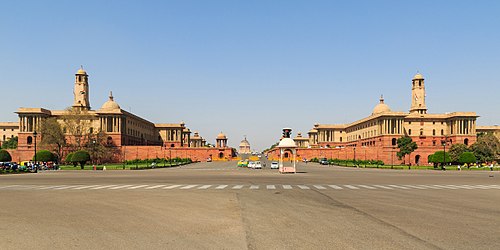
BILATERAL ISSUES BAHRAIN Visit of External Affairs Minister to Manama, Bahrain (July 14-15, 20.....
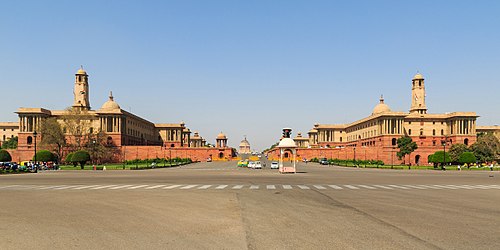
BILATERAL ISSUES BAHRAIN Cabinet approves MoU between India and Bahrain on cooperation in the .....
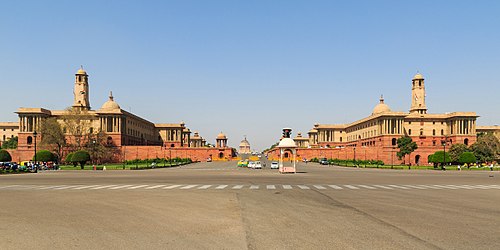
BILATERAL ISSUES IRAN External Affairs Minister’s meeting with Iranian Foreign Minister,.....
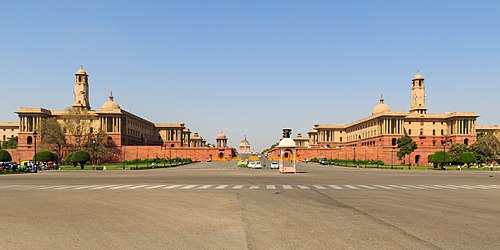
BILATERAL ISSUES IRAN Cabinet approves MoU between India and Iran on the establishment of an e.....
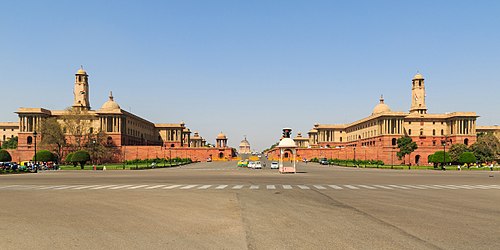
(Monthly Digest of Official Indian Statements on Middle East) BILATERAL ISSUES EGYPT Mr. Sa.....
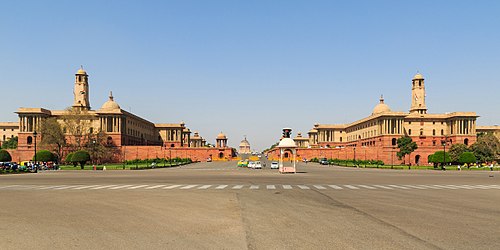
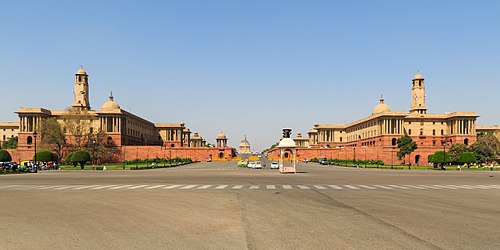
(Monthly Digest of Official Indian Statements on Middle East) BILATERAL ISSUES IRAN Launch .....
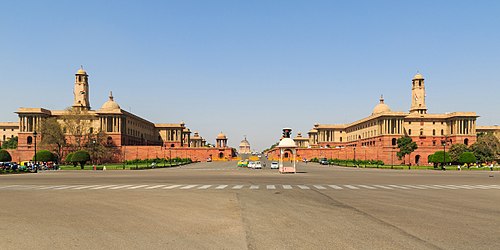
(Monthly Digest of Official Indian Statements on Middle East) BILATERAL ISSUES &.....
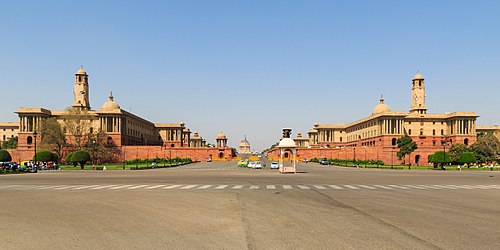
BILATERAL ISSUES a. EGYPT 1. H.E. Col. Rajyavardhan Singh Rathore, Minister of State for Youth.....
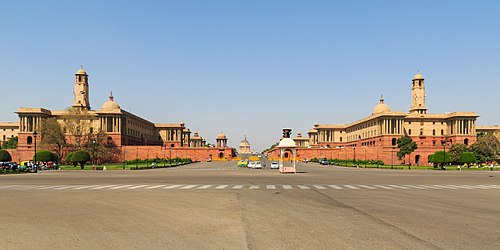
BILATERAL ISSUES a. IRAQ 1. India’s position on the Referendum held in the Kurdistan Reg.....
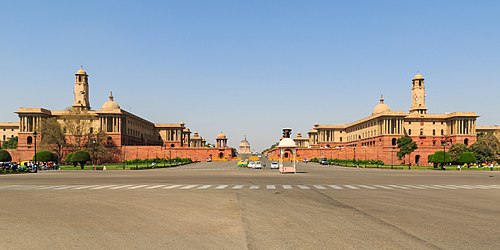
BILATERAL ISSUES IRAN 1. 6th Meeting of Joint Committee on Ports and Maritime Cooperation.....
